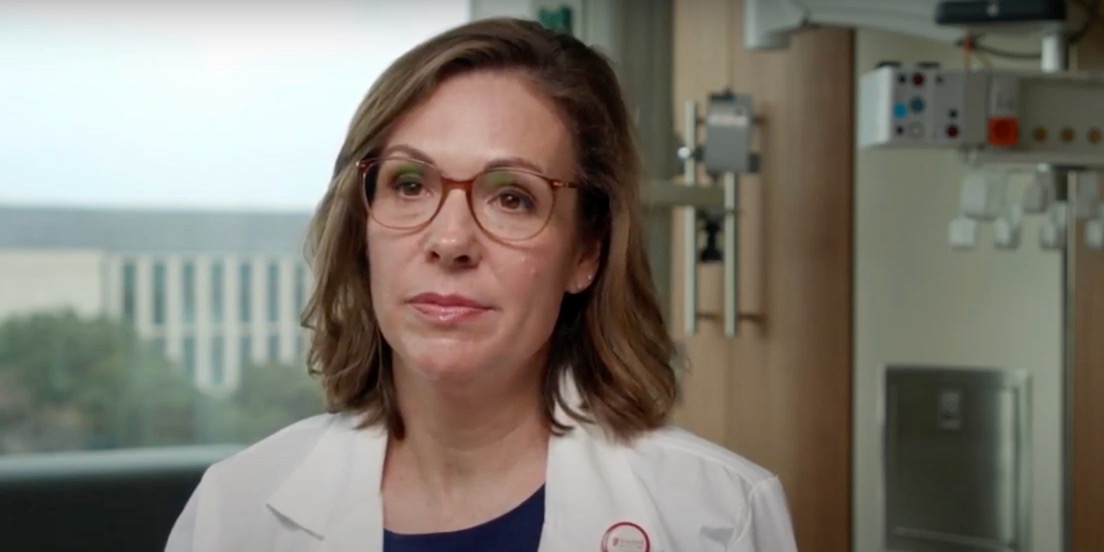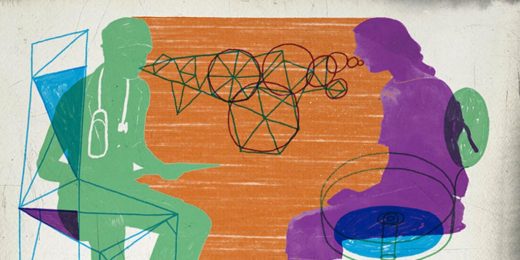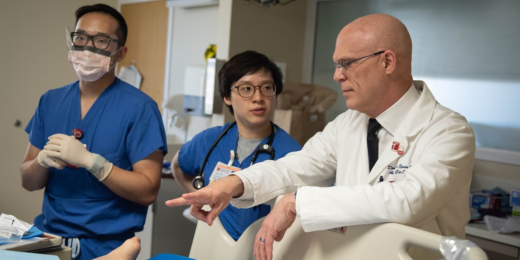Though some may find it surprising, terminally ill patients often want and need to have honest conversations with their doctors about their illness, says Stanford palliative care physician Winnie Teuteberg, MD.
Those patients know, on some level, that they're dying, and they want someone to talk it through with them, says Teuteberg, a Stanford professor of medicine and the clinical director of Stanford's Serious Illness Care Program.
The program aims to help patients better understand their illnesses and communicate their health care wishes to their families and physicians through advance care planning. It began at Stanford in 2018, when the Department of Medicine joined a health system collaborative led by Ariadne Labs that includes more than 20 health care systems in the United States and United Kingdom.
For a 1:2:1 podcast, I spoke with Teuteberg about the program and the importance of advance care planning conversations. This Q&A is condensed and edited from our conversation.
What impact has COVD-19 had upon the Serious Illness Care Program?
We had to immediately develop guides for having serious illness conversations that are specific to COVID, covering medical therapies and choices for patients at high risk of a bad outcome from the disease. We worked on them with Ariadne Labs, which created the original Serious Illness Conversation Guide.
How is the Serious Illness Conversation Guide used?
The guide recommends language -- tested through patient focus groups -- to help physicians and other clinicians learn what critically ill patients understand about their illness and prognosis, what they don't understand, and what information they want to know. Do they want to be told when the news is bad? Do they want a lot of detail? Do they want just big picture?
Then, the guide suggests words that can be used by a clinician to deliver a prognosis in a way that's acceptable to patients.
It also includes a host of what we call the "explore" questions, which get at what's important to a patient and give us a good picture of the person and their priorities: "What are you hoping for?" "What are you most worried about?" "What gives you strength?" "How much are you willing to go through for the possibility of more time?" "What does a life worth living look like to you?"
Then the clinician and patient work together to create a plan for further care that matches the situation with what's important to the patient.
What do physicians tell you about their reluctance to have these discussions?
They'll say they don't have time. But if you push a little bit deeper, they'll tell you these are difficult emotional conversations, and they don't have the tools to help patients work through these strong emotions. No one likes to give bad news. Physicians feel like they're letting their patients down.
How do you encourage physicians to begin these conversations?
In the program, a lot of our role is to help physicians feel safe, so they can overcome those barriers. We tell them, "You don't have to do all this by yourself; other team members can help you." Then we gently nudge, gently encourage.
I'm hoping that these conversations can be a part of the culture in hospitals and clinics, so it becomes expected -- just like when a patient comes in and you routinely check their blood pressure and you take their temperature.
You've been doing this work for 20 years. What are key lessons you've learned?
Even when I think I know what a patient wants or what might be important to them, I don't really know until I talk to them. I'm often very surprised.
A lot of people ask, "How can you do what you do? It's got to be so depressing, so draining." It's actually often very uplifting work. People, when faced with a serious illness, are incredible in their resilience.
I tear up when I talk about it. I remember all these faces of just amazing human beings who face what's coming. They find a way to make the time they have left meaningful, and to care for other people who love them. Witnessing that, I think, is really a privilege.
Image from a Serious Illness Care Program informational video of palliative care specialist Winnie Teueteberg, MD.






